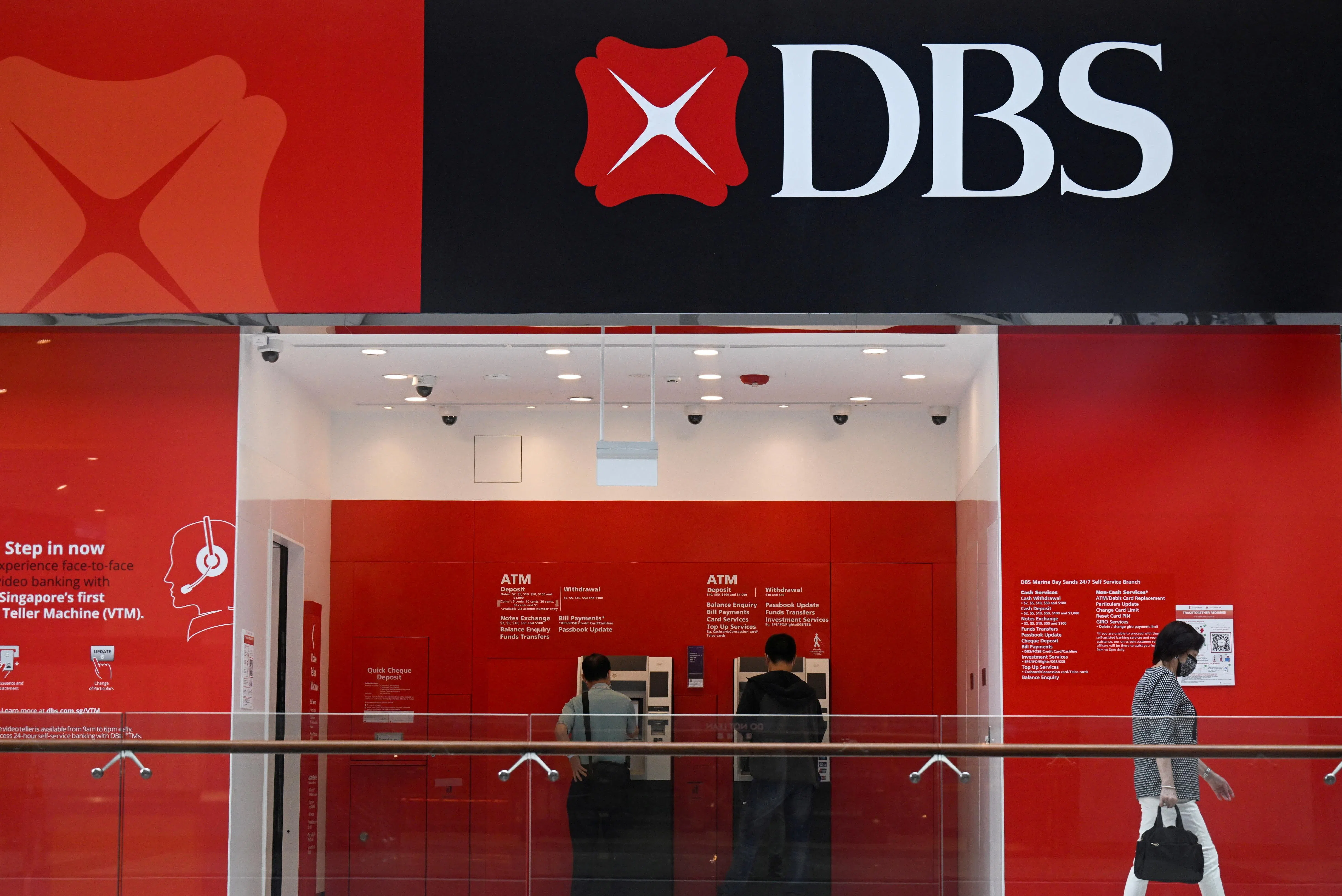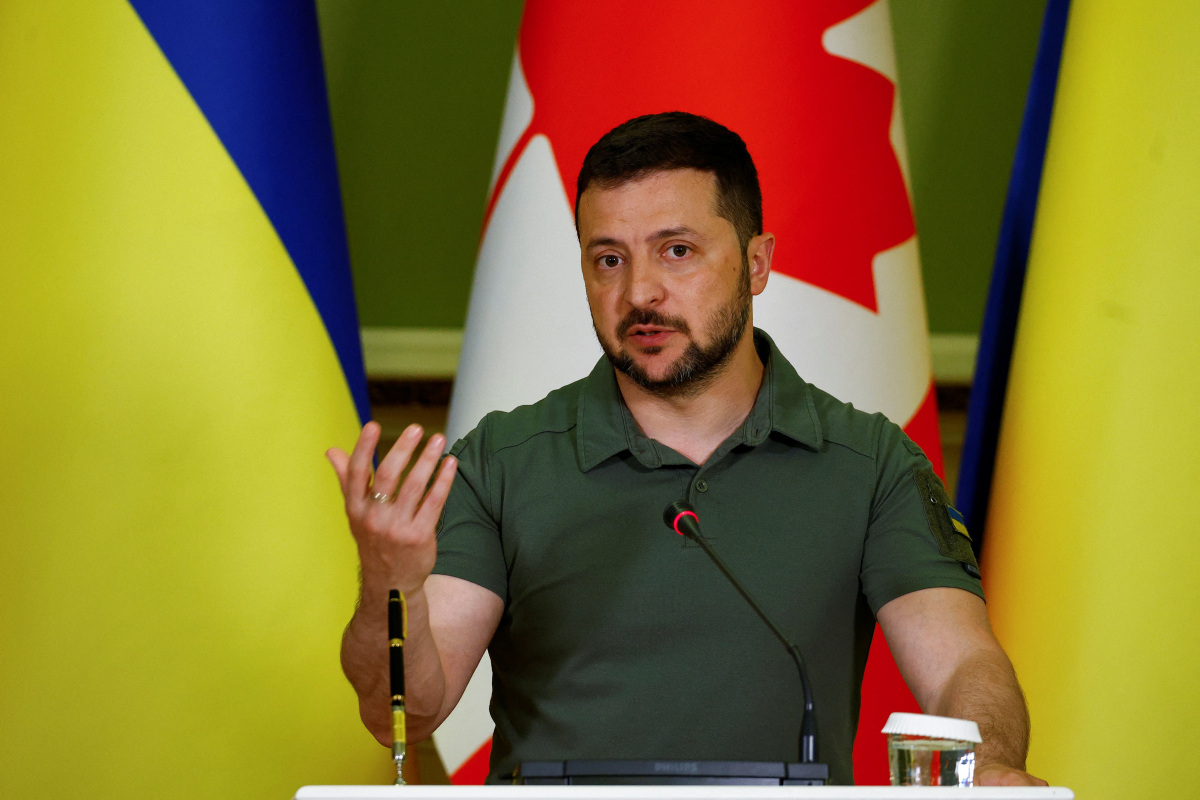DBS Group Holdings has beefed up its wealth management team to cater to rich Russians at a time when many global rivals are staying away from the business amid concerns over widening sanction risks.
Singapore’s biggest lender hired two people in recent months, expanding the number of Russian-speaking private bankers in the city-state to at least nine, according to public records. One of the hires joined in June from Union Bancaire Privee while the other banker who was previously with Credit Suisse started in September.
The additions came as DBS has become a go-to wealth manager for rich Russians in Asia after hiring a cohort of private bankers from rivals including Credit Suisse and Julius Baer Group over the past two years.
While Russian wealth assets remain a tiny fraction of the S$401 billion DBS manages for the private and retail banking customers, its pace of growth has been stark against other lenders who are mostly in a cutback mode. Financial institutions such as UBS Group and HSBC Holdings have restricted or even severed some ties with such clients on concerns of tough penalties from the US and Europe.
The Singapore government imposed its own targeted unilateral sanctions on Russian banks, cryptocurrency trading and exports after Moscow launched an invasion into Ukraine in early 2022, though some banking and wealth management activities for non-sanctioned parties have carried on.
“Like any other responsible bank, we welcome any client who favours our suite of products and services and we thank them for choosing us,” a DBS spokesperson said. “However, we will not deal with anyone who falls afoul of our controls (including sanctions screening or money laundering surveillance) or our risk appetite.”
BT in your inbox
Start and end each day with the latest news stories and analyses delivered straight to your inbox.
The spokesperson added that DBS does not have a specific team serving only Russian clients nor does it specifically target Russian clients alone.
DBS hired three bankers from Credit Suisse and one from Julius Baer around the end of 2022, according to the Monetary Authority of Singapore’s records and the relationship managers’ LinkedIn profiles. They had handled Russian assets in Singapore and Moscow, according to sources familiar with the matter, asking not to be identified discussing a private matter.
The Credit Suisse bankers brought more than US$1 billion in client assets to DBS after leaving the Swiss bank, which decided to shut its Singapore-based international wealth management team serving a mix of Russian, European and Central Asian customers, the sources said.
A spokesperson for UBS, which took over Credit Suisse last year, declined to comment.
For DBS, which aims to double fees from wealth management by 2027 and is poised to have private banking veteran Tan Su Shan as its next chief executive officer, it’s seeing opportunities in well-heeled people from various parts of the world shifting assets to Asia.
The minimum requirements for Russian clients to get DBS private banking services are US$20 million, about five times higher than the assets other private banking clients are generally expected to keep with the Singapore bank.
DBS offers Russian clients its full range of services, including credit cards, insurance and investment products, though they have to be assessed by a Singapore-based committee for risks, including ensuring they are not sanctioned and have verifiable sources of wealth, the sources added.
The Singapore lender said it already has in place a committee to assess the risks of its current portfolio of clients from former Soviet republics and Russia. That came after it purchased Societe Generale’s Asian private banking business a decade ago, which brought over these clients, the spokesperson said.
Still for many banks, the challenges in meeting compliance across different jurisdictions can be daunting. Singapore’s second-largest lender, OCBC, has told its customers, including private banking clients, that it will stop handling transactions involving Russia from Nov 1, citing operational difficulties in managing regulatory requirements, Bloomberg News reported in October.
Widening sanctions
With Russia’s war escalating in Ukraine, the risks of getting caught up in sanctions are mounting. The US in June widened sanctions against Russia to target natural gas projects and the stock exchange, as well as put local banks in countries that work with Russia at a higher risk of so-called secondary penalties. In November, it imposed restrictions on more than 50 Russian lenders and Gazprombank, one of the top financial institutions, that were used by European countries and Turkey to pay for Russian natural gas supplies.
The Monetary Authority of Singapore spokesperson said the central bank-cum-financial regulator regularly engages financial institutions on various issues, and all banks in Singapore are required to conduct rigorous checks and comply with its own financial measures in relation to Russia.
“There is no bar on dealing with Russian nationals unless they are subject to sanctions in their individual capacity,” DBS said in its response. “Every client is an individual to be treated on his or her own merits.” BLOOMBERG






